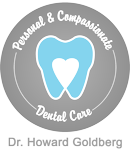Causes of Periodontal Disease
Periodontal disease is common among dental patients and is the leading cause of tooth loss among American adults. Plaque is usually brushed or flossed away, but if plaque is allowed to remain on the teeth for more than one to two days can harden into tartar. Only a professional dental cleaning can remove tartar, which can cause periodontal disease as long as it remains on the teeth. Over time, this disease can cause gum inflammation, receding gum lines, bone deterioration, and loose teeth.
Did you know?In addition to poor brushing and flossing habits, several other factors can contribute to the development of gingivitis and periodontitis. They include:
|
Frequently Asked Questions
What should I do if I have some of the risk factors of periodontal disease?
If you have one or more risk factors for periodontal disease, it is especially important that you visit your dentist for periodic exams. A thorough examination can reveal gingivitis in its early stages, allowing for easier and more conservative treatment options. If you are experiencing symptoms of periodontal disease, such as gum inflammation or bleeding, schedule an appointment immediately.















